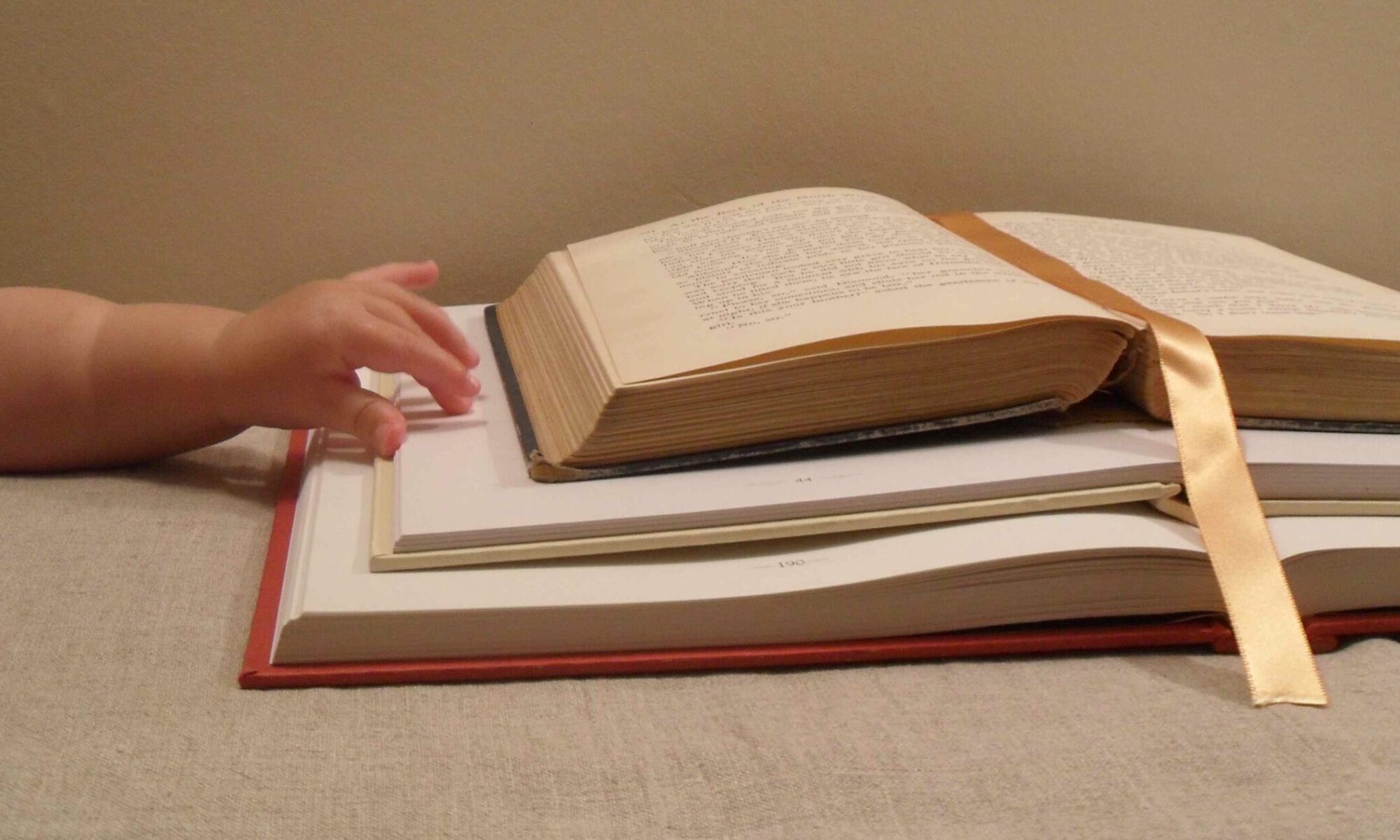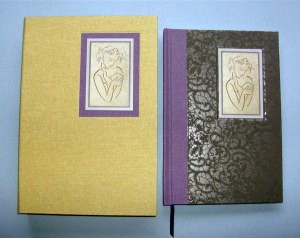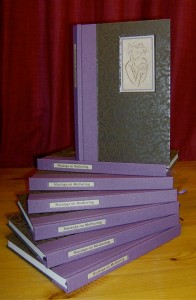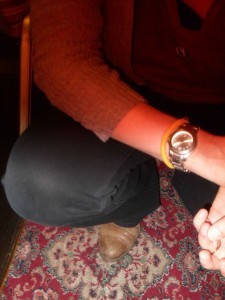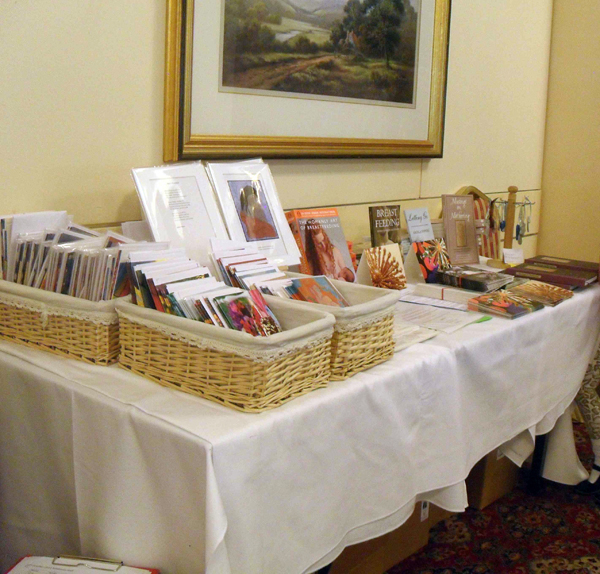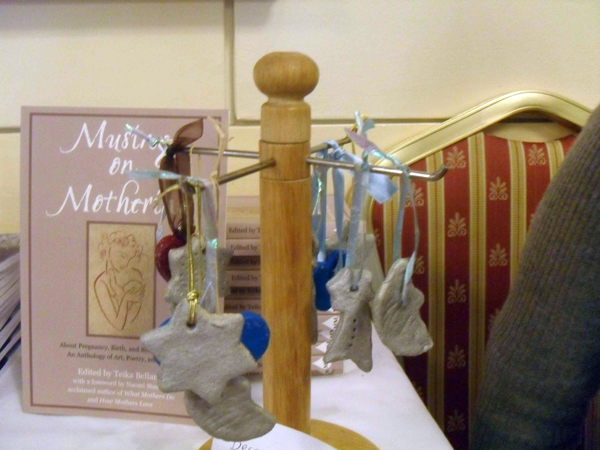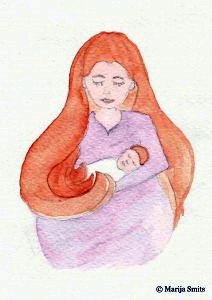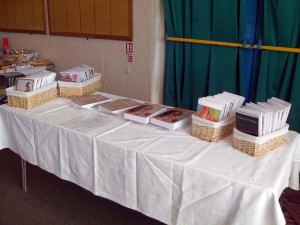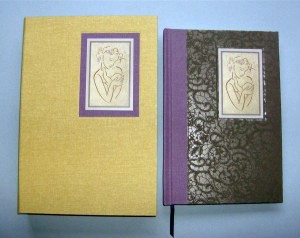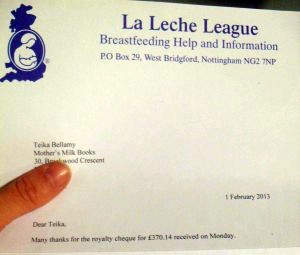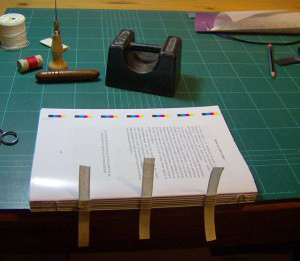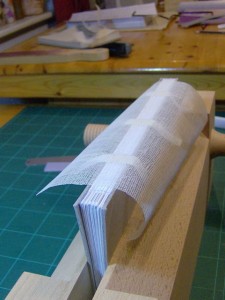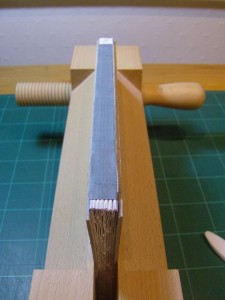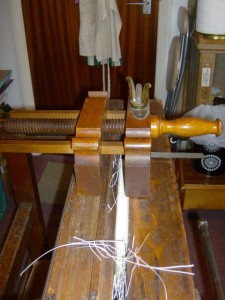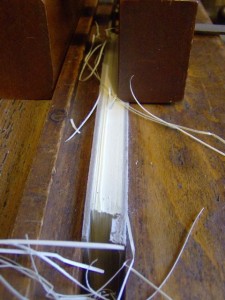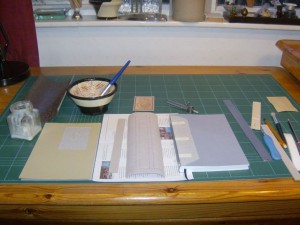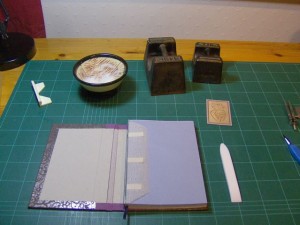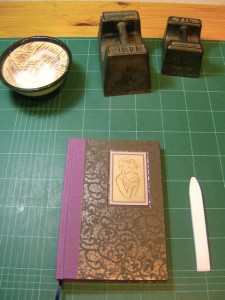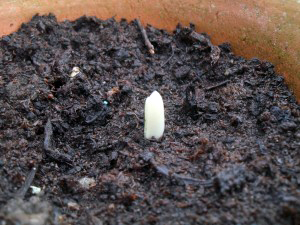Helen Lloyd is a Bath-based writer, editor and technical accountant. She has had something of a lifestyle shift since having her two sons, and now makes her living with a portfolio of work that uses all her skills, while spending her days with her family and seeking out spare minutes to read and to pursue an unrealistically long list of interests.
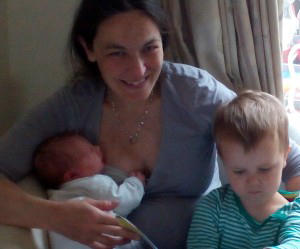
1. Please can you tell us a little bit about yourself and your family.
I live in Bath with my husband Huw, and two small boys, Isaac and Aneurin. Before I had Isaac we were living in London and I had a very busy job working in technical accounting. After I gave birth to Isaac I quickly realised that going back to my busy job wasn’t going to work for me and Isaac! I surprised myself by becoming (what I considered to be) a hippy parent — breastfeeding for much longer than I’d expected and finding that I couldn’t think of anything more important than being at home with my son.
So I left my job and found work that I could do around my baby by working every evening and every time he slept. Thrillingly for me the work was mainly writing (albeit about accountancy) and, for the first time, someone was paying me to write! (I now have two accounting books to my name, with another on the way.)
I trained as a breastfeeding counsellor with La Leche League so I fit that around my part time job, some freelancing with real spreadsheets (once an accountant, always an accountant), and now, of course, my work with Mother’s Milk Books.
I’ve been lucky to have the chance to edit LLLGB’s members’ magazine Breastfeeding Matters too – it’s hard work but is giving me lots of editing practice.
To make sure I keep writing, I blog at http://youngmiddleage.blogspot.com about all sorts of topics, with a bias towards books and babies.
2. So… you’re now working for Mother’s Milk Books as an editor. How did you first come to hear of Mother’s Milk Books? What was it about the press that held your interest?
I think it was when I first became involved with LLL – I saw a call for submissions for the book that turned out to be Musings on Mothering. I thought this might be just what I needed to get myself writing, so I contacted Teika but I’d missed the deadline. It made me aware of the press, though, and I bought the book as soon as it came out.
I loved the idea of a press that’s focused on these topics that had suddenly became so interesting to me: mothering, and breastfeeding, and all with a sense of warmth that didn’t come at the expense of intelligence or intellectual curiosity.
3. What will you be doing as an editor? And can you explain a little bit about how editing works?
At this stage I’ll be working pretty flexibly doing whatever’s most needed at the time! I’ll be reading manuscripts and debating their merits with Teika, as well as acting as a general sounding board; I then love the process of performing a detailed review and giving feedback for authors on what is and isn’t working.
From my own experience of writing, too, I know that everyone needs an editor. When you’ve laboured on something it’s really hard to be objective enough about what works and what doesn’t. This might be at the very high level of which viewpoint is used, or the large structure of a piece, or it might be in the detail, whether it’s repetition, paragraphs that don’t flow, or something else. I’ve had a few pieces edited myself where my first response has been total dejection because it’s covered in red pen – but actually, it’s incredibly valuable to have someone helping you work out what could be rearranged, clarified, or cut – even if it does feel as though they’re pulling apart your baby.
4. When you read a manuscript what gets you excited, and equally, what makes you nod off?
I think the thing that really pulls me into any kind of manuscript is honesty. This doesn’t just apply to non-fiction, and it means so much more than telling the truth. When a piece is written from the heart, and the author has been careful to listen to their own inner voice and to be true to it, it always pulls me in. I don’t mean that I particularly love confessional memoirs, but I really do dislike pretentiousness, false tone, or anything that seems like an attempt at cynical manipulation of the reader. I am also an automatic proof-reader and it does trouble me when anything has basic spelling or grammatical errors in it. It seems to me that one way of showing basic respect to a reader is to ensure that this sort of error just doesn’t appear.
I read a fiction manuscript recently that Mother’s Milk Books will be publishing next year (note from Teika: Helen is talking about the incredible Oy Yew) and I loved pretty much everything about it, though what’s really stuck with me is the authenticity of the main characters. The author clearly knew them as she was writing about them, and this glows through the work, and leaves the reader frantically rooting for them because they feel so real.
5. Can you tell us what some of your favourite books are?
This is such a hard question! My best way of answering it is to give you a couple of examples across a few genres, with the caveat that I’ll almost certainly have forgotten to mention something I love.
In fiction, if I need to be sure of reliably escaping from the world for a while, it’s Dickens every time, with Bleak House winning. I do enjoy a lot of modern fiction, too (though I’m impatient with even more of it) – I could single out Everything is Illuminated (Jonathan Safran Foer) just because it came back into my mind recently, and is such a perfect example of a consistent voice (in fact, more than one) and of idiosyncratic language use that is genuinely funny and touching rather than irritating.
In non-fiction, I must have read Naomi Stadlen’s What Mothers Do at least half a dozen times. It’s genuinely shaped the way I think about my mothering and myself, and has given me rich reserves of ideas to draw on.
Then, and arbitrarily limiting myself to a small number, I have to mention Stephen King’s On Writing. Whether or not King’s novels are your thing, his advice on writing is provocative and stern and sensible and accurate and, most of all, inspiring. If you read that, and Bradbury’s Zen in the Art of Writing, and Francine Prose’s Reading Like a Writer, and you’re not immediately overwhelmed with the urge to shut yourself away with a pen and a pile of books, then I’m going to suggest that you’re not quite human!
6. Some of your favourite authors?
Again, where do I start, and where do I stop?
In no order: Marilynne Robinson, Charles Dickens, Lorrie Moore, and Hilary Mantel. If I had a shelf full just from them then I’d be able to stay in one room forever.
This is based on a very personal idea of a favourite author being someone whose new work you would buy regardless of its title, described content, or critical response. I suppose Dickens fails that test, as he’s unlikely to produce anything new, and I can’t imagine I’ll ever read Pickwick Papers to the end, but he’s a reliable safe place, and bears infinite re-reading. With someone like Hilary Mantel, her voice is so eerily hers, despite the massive range of topics her novels and stories have covered. I hungrily seek out interviews with her, just to get a fix.
7. Any thoughts about the kind of literature being published nowadays?
It seems to be so hard for any book to make a mark. To my mind, this means we’re seeing a lot of low-risk literature being published, in the sense of covering areas or themes that have already been addressed again and again.
There’s still room for bravery and innovation, but it’s hard for publishers to take a leap where a work can’t be easily categorized.
I also have a personal bugbear about books that just aren’t edited enough. There has been flab in a lot of the modern fiction I’ve read recently, sometimes with whole sections that do nothing to move a story forward, or just with a general tendency to overwriting. In some cases I imagine this to be left in there through editorial fear of offending the writer, and it irks me. An editor should be able to be honest enough (and trusted enough) to be able to point out this kind of excess, because writers are usually too close to their own work to be able to be sufficiently ruthless.
8. Are there any up-and-coming authors we, as readers, should be watching out for?
I mentioned above reading a manuscript that I’d loved pretty much everything about. Ana Salote’s Oy Yew will be published in Summer 2015 and I’m so excited about it. Ana’s writing is so fresh, and although it’s a children’s book, it’s subtle and complex enough to have kept this adult enthralled – and it’s the first of a trilogy! I’m hoping to invoke some kind of editor’s rights to grab the manuscript of the second one the minute the ink is dry.
9. Now that the benefits of breastfeeding are better understood is there a need to publish books that celebrate femininity and normalize breastfeeding? i.e. is there still a need for Mother’s Milk Books?!
I do think there’s a very real need for this sort of book, still. The benefits of breastfeeding are well documented, but I’m not sure they’re fully understood yet, and there’s definitely not enough out there that celebrates the joy of breastfeeding (as opposed to the health advantages and so on).
Some people are embarrassed about celebrating the mother-baby relationship, worrying that it reduces women to their reproductive skills, but this ignores the possibility of rich transformation that motherhood brings. Mother’s Milk Books has a place in recognizing and valuing this.
10. What kind of books would you like to see Mother’s Milk Books publish?
I’m not unbiased here, since I’ve loved everything Mother’s Milk Books has published so far, but I do hope to see more straight non-fiction books celebrating the joys of mothering. (Note from Teika: Helen, your wish has been granted! more on that later…) The anthologies so far (Musings on Mothering and Parenting) have been packed with fantastically written short pieces – so many of these have themes that could easily grow into a book! I have a couple of particular hobby-horse ideas of my own, but I’ll keep them close to my chest while I nurture and develop them.
It would be great too to see Mother’s Milk Books printing fiction where breastfeeding is casually present, as it were – not a theme, or a preoccupation, but a natural and unremarkable part of the picture. Apparently, Baby X by Rebecca Ann Smith which is being published in 2016 fits this remit so I’m eagerly waiting to get my hands on this too!
11. Can you share any tips for aspiring writers wishing to be published? Or tips for how to get creative when you’re a busy mum?
For those hoping to be published, I’d say keep working on it. Write as much as you can, and read as much as you can, and work out why you love the things you love, so you can try to do it for yourself. But bear in mind that producing work that you’re proud of is only part of the battle, and be prepared for rejection and disappointment along the way. It may take a while to find a publisher who is a good fit for you.
As for creativity, I wish I managed this better myself. The best tip I’ve had, though, is to stop hanging on for those lovely great swathes of uninterrupted time that you used to be able to carve out for yourself in your life pre-children. Realistically, it will be years before this sort of luxury is available, so train yourself to work whenever you get any time at all, even if it’s only ten minutes as you hide in the kitchen while the pasta’s cooking. It takes strength and mental discipline to get good at using these slivers of time, but they really can add up – and besides, they are all that you’re going to get, so make the most of them.
12. If someone would like to support Mother’s Milk Books, what should they do?
Buy some books! Obviously there are other great things a supporter can do, such as sharing their love widely with friends and family and all over social media, but ultimately the way a business keeps going is by making sales – and this is a business that is worth keeping going.
13. Where do you work? Do you have a picture of your workspace that you’d like to share with us?
I’m in the smallest bedroom of the house, which comes complete with fitted wardrobe. I’d like to say that the picture is of my space on a messy day, but in reality this is as tidy as it ever gets. You can see that I have no separation of my interests/work streams except in having two computers so I can kid myself that everything’s under control.
One day I’ll have a long desk, the length of the room, with a work end and an art and craft end, with enough drawers underneath, enough shelves over, and a functional but pretty chair. Until then, it will be the folding dining table, spare dining chair, and books piled up wherever I can make room for them.
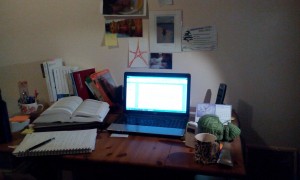
14. Final bit of frippery… tea or coffee? Milk or no milk?
Coffee, strong and black. I cut it with decaff at the moment, but there is just no joy to compare with that first cup of the day.
